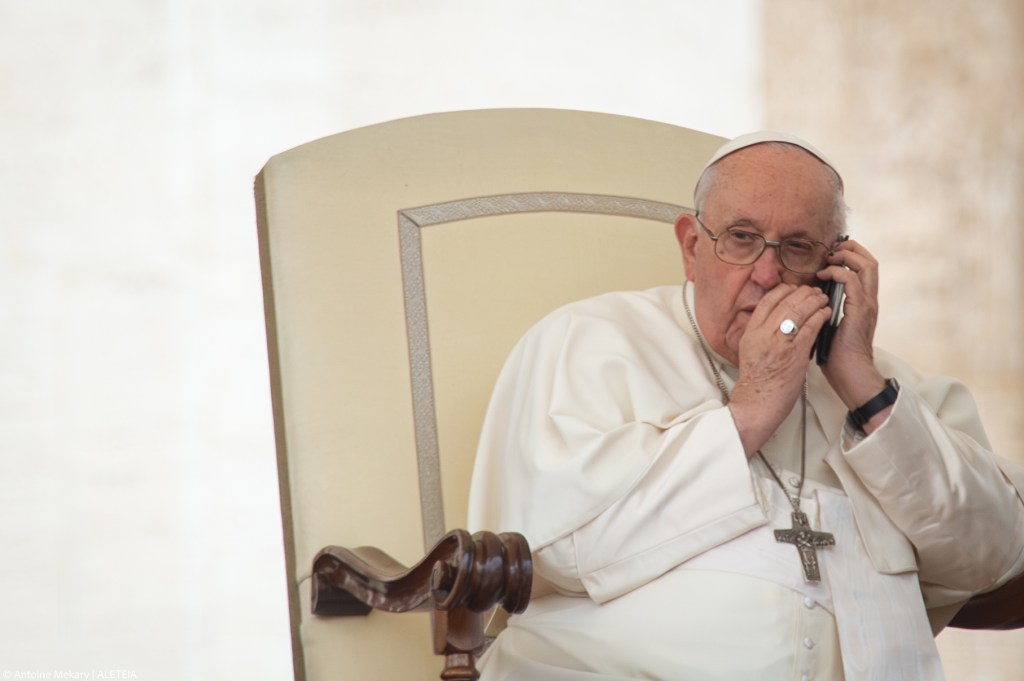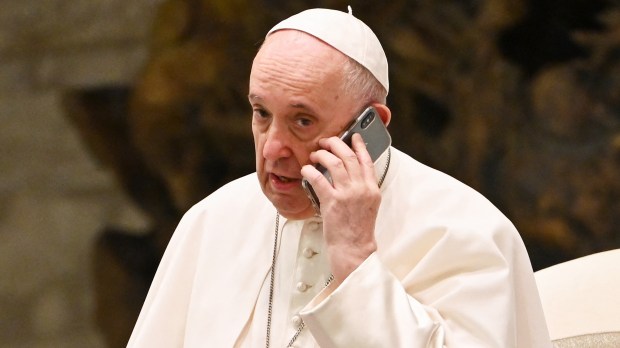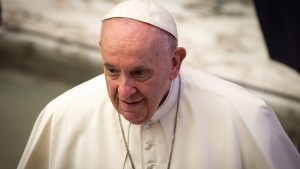Lenten Campaign 2025
This content is free of charge, as are all our articles.
Support us with a donation that is tax-deductible and enable us to continue to reach millions of readers.
This is one of the great hallmarks of Francis’ pontificate: Since his election in 2013, he has taken liberties with the usual processes of Vatican communication. Whether he’s answering his own mail with handwritten cards or spontaneously picking up the phone, the Argentine pope makes himself close to the most humble as well as the greatest, even if it means bypassing official channels of diplomacy.
Not a crank call
“Hello, this is Pope Francis.” Many have heard this introduction as they picked up their cell phones. Often to their great surprise — many thought it was a hoax at first — the Pope would call them after a letter to express his closeness, solidarity, and prayer. This was the case for an Argentine rape victim in 2013, a young autistic boy in Cremona province in 2020, and last June, an Italian couple who told him about their daughter Gloria’s difficult pregnancy.
Even during his summer break, Francis doesn’t give up this habit. In the summer of 2017, he telephoned young Italians who had invited him to come on pilgrimage to the Italian shrine of Loreto. He also called an Argentine worker from Buenos Aires who had to have both legs amputated after being injured by the blades of a garbage truck, to inspire him with courage. For the past 10 years, the press has reported some of these episodes, but many of them remain private.
The man who as a cardinal was seen as a simple clergyman on the public transport system in Buenos Aires has always needed to be a parish priest among the people. And on the Throne of Peter, he bypasses the apparatchiks of the Curia.
His phone calls to leaders dealing with tragedy in their country are countless. He called Ukrainian President Zelensky at the start of the Russian offensive in Ukraine, Orthodox Patriarch Tawadros at the time of the murder of Orthodox Copts in Libya, Mayor of Nice Christian Estrosi after the 2016 terrorist attack, and Charles Michel, President of the European Council, in the midst of the COVID pandemic.

Outside the usual channels of communication
Even more recently, on November 21, two days after the election of Argentina’s new president, Javier Milei, it came as a surprise to learn that Pope Francis had telephoned him, outside any diplomatic circuit. The daily La Nacion reported that the personal friendship between a close friend of Javier Milei and the ophthalmologist Fabio Bartucci, who had operated on the Pope for cataracts, had enabled direct contact to be established between the Pope and the ultra-libertarian politician. The Holy Father’s sign of closeness came despite the fact that Milei had been a violent critic of the Pontiff during the election campaign.
Bergoglio is accustomed to acting on his own initiative, without prior notice; and yes, sometimes this puts his own Secretariat of State in a difficult situation. The day after the outbreak of war in Ukraine, in February 2022, the Bishop of Rome took the initiative — unbeknownst to Vatican diplomats — of visiting the Russian embassy to the Holy See in person, a visit that was reported in the press.
But these initiatives also demonstrate his pastoral care and attention to the files piled up on his desk. For example, having had to cancel his meeting with 21 victims of sexual abuse in western France on November 27 due to bronchitis, the Pope himself picked up the phone that evening, offering to receive them the following day. A gesture of attention from the man in white which, like his similar initiatives over the past 10 years, greatly touched his interlocutors.


